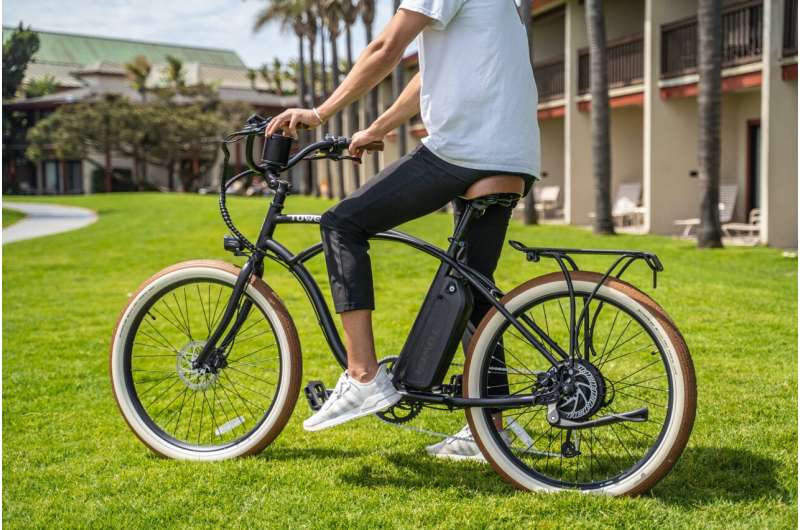This article has been reviewed according to Science X's editorial process and policies. Editors have highlighted the following attributes while ensuring the content's credibility:
fact-checked
trusted source
proofread
Leisure-time physical activity is associated with better mental health among adolescents

A recent study led by the University of Eastern Finland suggests that regular leisure-time physical activity, even in small doses, is associated with lower odds of depression, anxiety, chronic stress, and school psychologist visits among Finnish adolescents. However, the relationship between active school transport, i.e., walking or cycling to school, and mental health remains inconclusive. The findings were published in the Scandinavian Journal of Medicine & Science in Sports.
Regular physical activity can improve mental health through various pathways, such as increasing the production of "feel-good" hormones, enhancing sleep quality, and boosting self-confidence. While mental health problems are common, few large population-based studies have examined the relationship between physical activity and adolescent mental health. Furthermore, it is currently unknown whether active school transport can have beneficial effects on mental health.
The researchers observed that leisure-time moderate-to-vigorous physical activity was associated with better mental health among nearly 33,000 15- to 16-year-old adolescents. Compared with inactivity, as little as 30 minutes of weekly physical activity was associated with 17% lower odds of chronic stress symptoms. In addition, the odds of depression and anxiety symptoms were 22% and 32% lower, respectively, for adolescents who reported an hour of weekly physical activity. The most physically active youth (i.e., those reporting at least four hours of physical activity a week) had the lowest odds of mental health symptoms.
"Our observations regarding leisure-time physical activity are in line with the literature. Although the cross-sectional design of the study prevents us from drawing conclusions about causality, findings from smaller prospective and intervention studies support the results—at least for depression," says Juuso Jussila, a Doctoral Researcher at the University of Eastern Finland.
The association of active school transport with mental health differed from leisure-time physical activity. No associations were found between low-to-moderate doses (less than 30 minutes) of daily active school transport and mental health. However, walking or cycling to school for more than 30 minutes a day was, surprisingly, associated with higher odds of depression symptoms and school psychologist visits. The analyses were adjusted for school grade, sex, ethnicity, household financial situation, parents' education level, distance to school, and various lifestyle behaviors.
"The observation was somewhat unexpected. However, adolescents may not be able to choose their transportation modes as often as adults. If you must walk long distances every day—in any weather—active school transport may become an unpleasant routine. It is possible that this type of compulsory physical activity may not be able to improve mental health as efficiently as leisure-time physical activity, which we often participate in because of enjoyment and friends," Jussila points out.
"Despite our observations, I would recommend active school transport to all children and adolescents. While it may not improve mental health, it can improve physical fitness and cardiometabolic health. Walking or cycling to school also reduces pollution from motorized traffic," Jussila says.
More information: Juuso J. Jussila et al, Associations of leisure‐time physical activity and active school transport with mental health outcomes: A population‐based study, Scandinavian Journal of Medicine & Science in Sports (2022). DOI: 10.1111/sms.14292



















